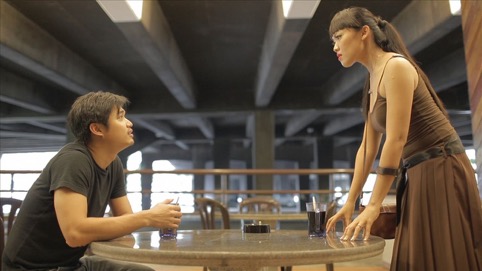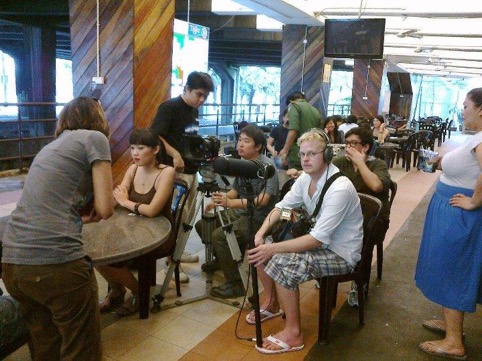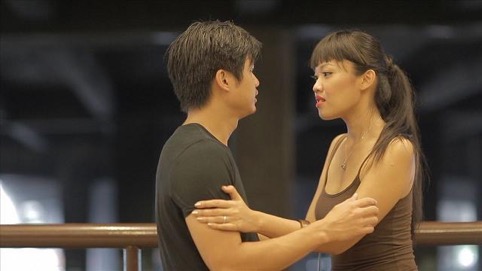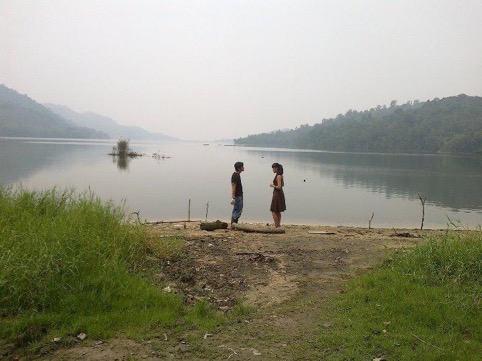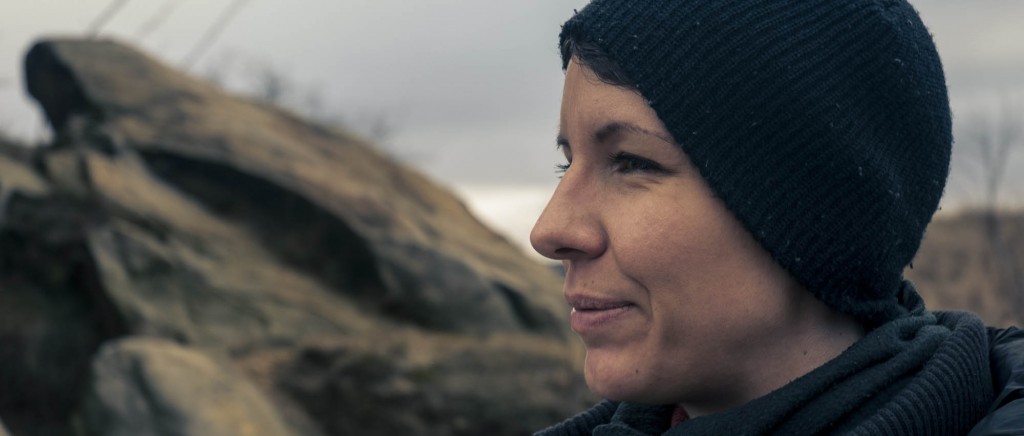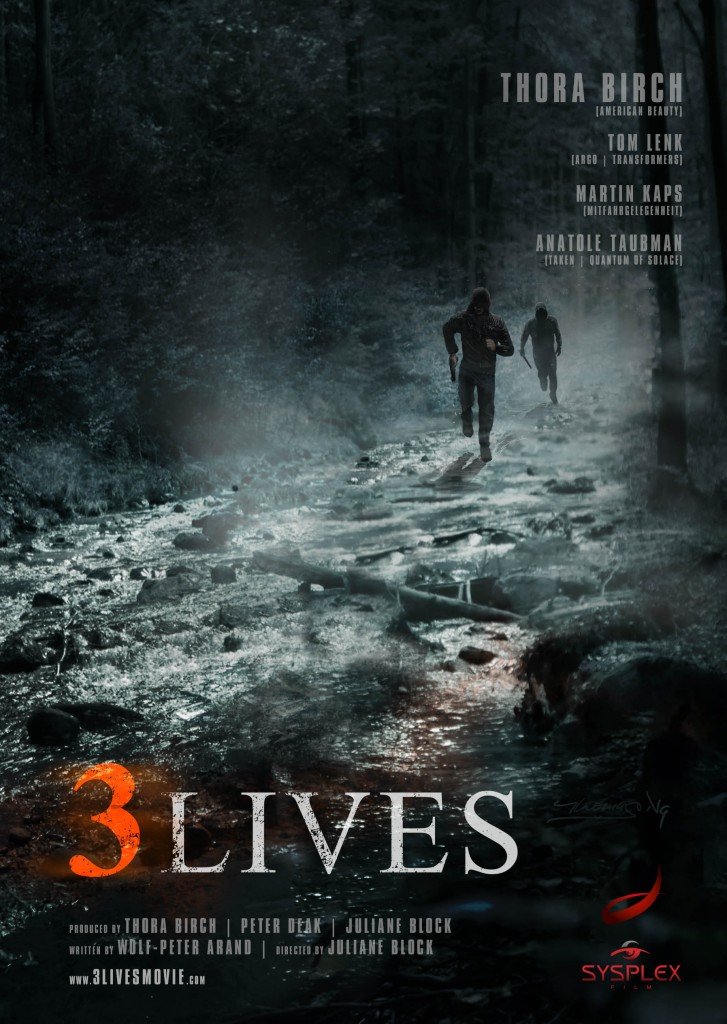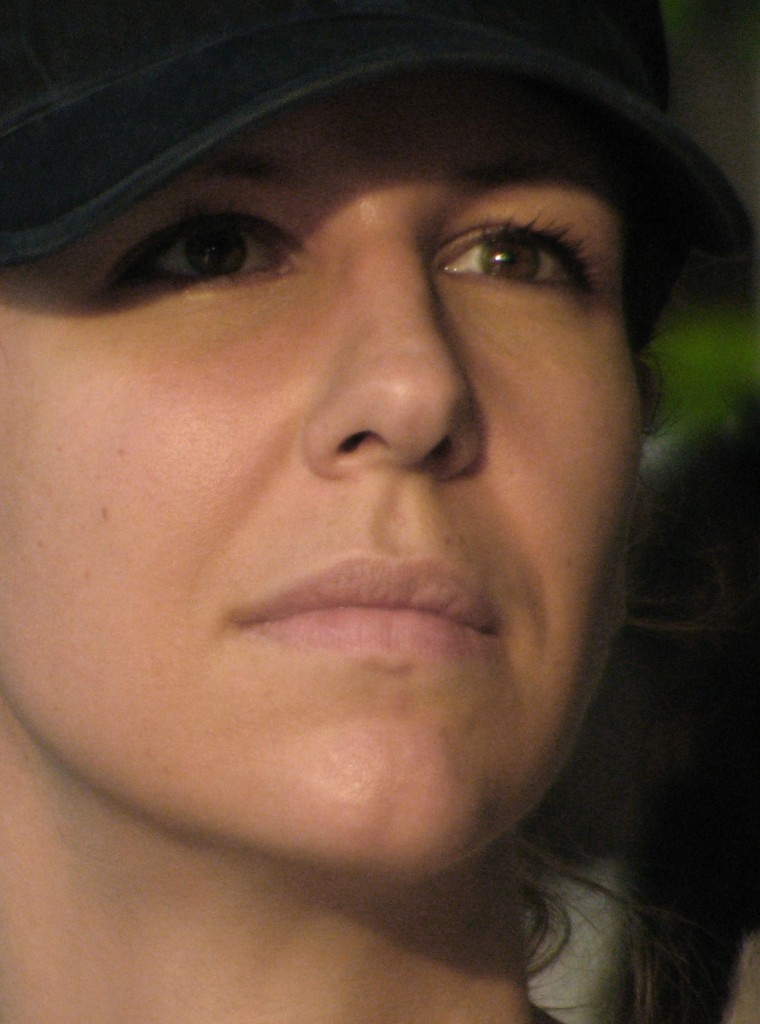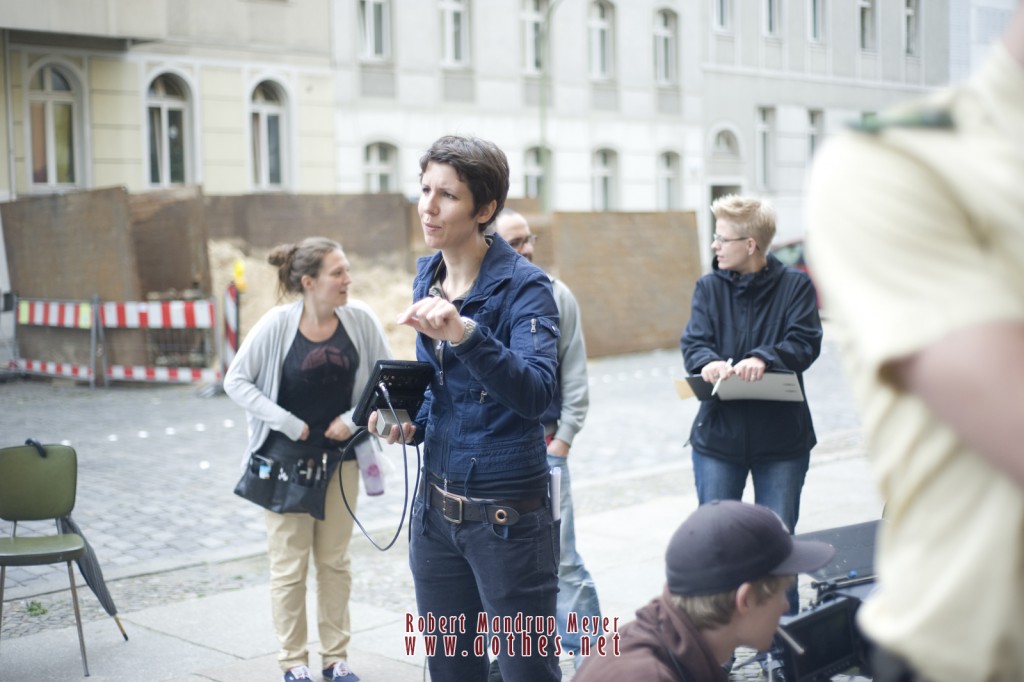The Featured Filmmaker Series gives you the chance to get to know CollabFeature filmmakers through a series of interviews that give an inside peek into the minds and lives of our collaborators.
Before I introduce the next featured filmmaker for the Train Station, let’s me go slightly back in time.
December 2010.
I had read the Collabfeature success for “The Owner” and was just trying my luck for their next one and so I filled up the forms and send my reels of my past works. Few days later, I received an email from Marty Shea and got selected to be part of the Train Station!
I did not know what to expect nor I have any idea how all this will work out. It was indeed a crazy idea! The initial script stages started really well, using the online platform to collaborate on our stories (and links), but midway of the process, the entire thing started to take a huge turning point - I had to call it off due to personal reasons and bad timing.
Everyone in the group was sad for me having to leave but nevertheless, I had no choice. I apologized to one and all and told them to go ahead and use my initial draft of script or find another director/writer to take over my seat. With a heavy heart, I said goodbye.
2015.
Time passed and I had forgotten about it until recently when my IMDB page notified me of an added screenplay credit for Train Station. I was speechless but happy at the same time and then all those memories came rushing back. My only question was, "Who was it that directed my screenplay?" I search the Directors List and there was this name so very familiar although I had not seen him for a very long time - Tony Pietra Arjuna.
And the story of how we knew each other is an amazing story to tell but perhaps now it’s more about him and how he put them together. Tony had stay true to the original screenplay which I wrote years ago and watching it cometo life visually was a “goosebumps” experience - it was my first ever screenplay directed by someone else!
We met up recently in Kuala Lumpur, after more than 5 years since we last met, and we started having conversations about all the things that happened during my absence from the project. Here are the excerpts from a 3-hour long chat session that we had over coffee…
Isazaly: What actually happened after I dropped out of Train Station?
Tony: Juliane Block (one of the most prominently involved directors in Train Station) contacted me to direct your script for the Malaysian segment. I met Juliane while she was living and making films in Kuala Lumpur. I didn't see her for a while until 2011, when she Skyped me from Berlin (that was when the first CollabFeature project, The Owner, was completed) and recruited me for CollabFeature. As a budding filmmaker, I couldn't refuse the opportunity to get involved in the most pioneering and unique indie/international project at the time. I also felt honored that Juliane shortlisted me for the privilege, so I wanted to make good on that!
I: There will always be hurdles and issues in every production. What was yours?
T: Incessant noise from roadside traffic and torrential rain! We had an ace audio engineer, so he solved that problem.
The other hurdle was overcoming my lack of confidence and rustiness, since that was my first time directing a slice of live-action fiction/narrative after two years of animation and documentaries. I struggled for a bit but I guess that I did alright, in the end.
I: When I saw the final edit of our segment, I get a sensation that it feels very sexy and surreal at the same time. The music really helps. What inspired you to go that direction?
T: I grew up on John Carpenter as a kid while Sergio Leone and Michael Mann ruled my formative years. As an adult, I am still in the process of finding my own voice as a director but I continue to consciously (and unconsciously) take storytelling or stylistic cues from those guys, particularly in the crime and horror/thriller content that I made for local TV. However, David Lynch is my favorite "mentor". Blue Velvet rewired my cinematic brain when I first experienced it as a tween: A life-changing rite of passage from my Amblin/Spielberg-saturated childhood to movie maturity. Our Train Station segment does its best to channel Wild at Heart (I even used Angelo Badalamenti's score as the temp track). Of course I'm losing my mind over the Twin Peaks revival!
I: I really like the collabfeature concept of making movies with multiple directors and it gives us the opportunity to see different styles and culture in one big movie. Amazing right to even see it come together as one film?
T: Hell yeah! Aside from becoming an active part of something that is important, new and potentially revolutionary (which travels in film festivals around the world, to boot), CollabFeature's globe-spanning concept/nature appeals to me on a very personal level. I was raised as a "third culture kid", which simply means that I lived in different countries throughout my youth, thus making me the "global citizen" that I am today. Train Station granted me the chance to rekindle that chapter of my life through my filmmaker aspirations. To once again be in a community of various nations and doing what I love while I'm there? Impossible to resist. Plus, other than English, we all speak the same obvious language.
I: When I wrote the original draft, I figure that maybe the locations only exists in my head, but when I saw the scene, I was like - wow! Just like how I imagine it!
T: The lake scene was shot at a reservoir in a town called Ulu Yam. It's the nearest body of water to the city, so every K.L.-based “tom, dick and harry" production will utilize it! The cafe scene was set in a food court that was converted from a parking lot, beneath a highway ramp in the Petaling Jaya district of K.L. Visually, with all the concrete above and around us, it was an atypical and surreal place to sit and have coffee. It worked for the scene's slightly off-kilter atmosphere.
I: Do you want to do this again, if there are other opportunities like this?
T: I most definitely will and I already have: Not long after Train Station was in full swing, I directed a neo-noir segment of Cuak (aka Second Thoughts), a Malaysian anthology/indie feature with five filmmakers.
The movie was released theatrically in 2014 but it could still be seeking a second life in overseas festivals. It was a team effort that felt much like a mini-CollabFeature in its collaboration model. The experience was creatively fun and invigorating. Everybody involved became like family and when it was over, I was hungry for more. The process was addictive and ultimately rewarding.
I look forward to the same feeling at Train Station's last stop!
I: It’s amazing to think that this film reunite us again after so long we have not met or spoken. I guess the journey is far more greater meaning than the destination itself. Not sure if it will ever going to be screened here in Malaysia (with our strict censorships) but nevertheless, at least I am happy to see it being materialised and completed.
T: It’s been a great pleasure to be finally working with you again and yeah, welcome back to the team and let’s bring the train home!
Interview conducted by Isazaly Isa.
